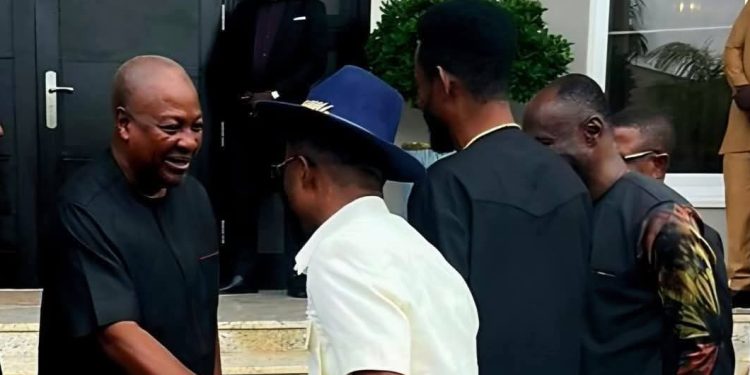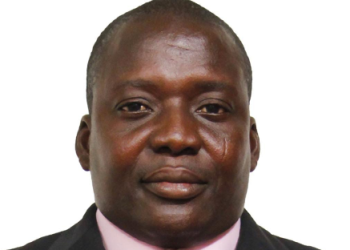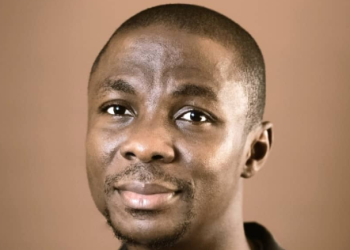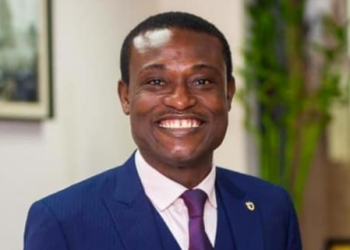What are our worst fears? Or we might ask: who do we fear most? Examining the role of spiritualising and fear in the political culture of Ghana’s Presidency and its impact on governance.
Around here, it is fashionable to fear God, and it doesn’t matter if we don’t respect Him enough to do His will.
The best way to show our reverence for God is to spiritualise our fear.
This is true for bank robbers and corrupt apostles who pay tithes and prophesy in churches.
And it is truer for nations that build cathedrals and invest in doom prophesies, when their people drink from the same pond as cattle and pigs.
Their worst fears show when basic answers elude them in their moments of crisis.
Ghana mourns gallant 8
Ghana is in crisis. The dust is yet to settle on how a military chopper ferrying eight national heroes crashed.
A nation is united in grief, and we are not in a hurry to heal–until the families of all eight heal. Their wives. Their children.
Ghana is hard-pressed on every side, and our emotional infrastructure is crushed. Now, somebody must send us the cure, a Deus Ex Machina (God from the machine), to fix us anon.
If our story were a Greek play, our Deus ex Machina would occur as God miraculously dispatches an angel from the clouds to literally catch the ill-fated helicopter in the skies, hold it together with both hands, to land on safer grounds.
Like the Greeks, we look to our Patricians–those gifted with bigger brains–for leadership and answers.
Alas, the President has come through with a cure to Ghana’s perplexing problems, especially regarding doom prophesies: An Envoy on Interfaith and Ecumenical Relations to monitor, collect, review and escalate prophecies that have implications for the presidency, national treasures and public security.
More than just a desk for prophecies, the Presidential Envoy, Elvis Afriyie Ankrah, has said his office will work with faith communities locally and internationally, manage relations with big cross-national governance bodies such as ECOWAS, the African Union, and the United Nations, and handle other critical matters.
So far, the Presidential Envoy has received several hundred prophecies from people who trade in visions, dreams, and metaphysical conundrums.
A social commentator who mischievously describes himself as the ‘Presidential No-Nonsense Envoy for Commonsense’ regrets that the President’s Office is not asking Ghanaians to send in proposals for rebranding of cocoa exports or underground drainage.
What nonsense is this?
With crying emojis, he hopes something monumental would jolt our collective conscience to dig into our hearts and ask why Ghana lags behind in STEM education, Artificial Intelligence, and is unable to provide jobs for university graduates.
He invests his last question in the belly of a laughing emoji: “Does Elvis know anything about the Industrial Revolution and where Ghana sits in history? ”
The Presidential Office for Prophecies, as it has been variously mocked, may well be described as the Diabolus ex Machina (Devil from the machine) to worsen the plot of the Ghana story. The big uncle of Ghanaian journalism, Kwesi Pratt Jr, asks: “What nonsense is this?”
He questions the methodology the Envoy would employ to review the prophecies: “Is he going to call God and ask him?” Our big uncle also worries that Ghana may be the only country in the world’s most promising democracies to create a desk in our governance architecture for prophecies.
The prophecy review idea may sound nonsensical, but it reflects the reality of the religious nonsense that we have tolerated since the Gold Coast. We are secular but incurably religious.
We see these self-styled prophets dress flamboyantly and hear them foretell our future, often spiritualising our fears about the unknown.
When they delve into the realm of the spirit, they alienate and enslave us to do their whim, because we don’t have eyes to see those realms. Strangely, our finest preachers do not seem to hear from God; they just preach the word.
The prophets exploit our vulnerabilities and order us to pay money or buy them cars, to speak to God on our behalf.
They tell you who to marry. Unlike former CNN anchor Isha Sesay, who got a random sperm to produce a baby when a husband was not forthcoming, our prophets tell women to wait as faithfully as Abraham’s Sarah, for God’s time.
They have sent women to early graves by blessing spiritual concoctions to shrink a growing fibroid or cure breast cancer, instead of going for surgery. When your business fails, they blame a witch for your mismanagement.
Testing the spirits
The other day, one of them prophesied that he had seen me in the realms of the spirit being promoted to an important position in my organisation.
I played along and confirmed that I had just been promoted. Immediately, he saw another vision of my daughter getting married to the son of a prominent man.
He ordered that we pray because a familiar enemy is not happy about it.
He also prophesied about the plans of a business partner to poison me after a successful joint deal, and challenged me to make a huge financial sacrifice to reverse the diabolical plans.
The next month, I told the prophet I had just lost my job and my daughter’s wedding had been cancelled. He blurted with prophetic impatience: “You see, I saw everything, but if you had paid the money, I would have overturned all these misfortunes.”
Turning the tables on him, I teased the prophet that I was just quizzing his prophetic accuracy and that my daughter is only seven years old, and I still held my position in the organisation.
After a moment’s silence, he chuckled and cursed: “Why do you test the spirits? Be careful. I can kill you”.
Are these the kinds of prophecies to be reviewed at the Presidency? I have one for Elvis: I prophecy that iPhone 25 will be invented at Kasoa and Kimathi Rawlings is getting married.
Tissues Of The Issues
bigfrontiers@gmail.com
Ottawa, Canada













